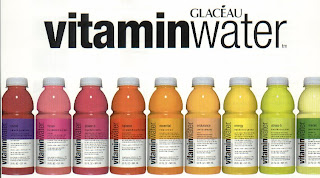This past March, I
blogged about how soda and snack food giant PepsiCo formed a partnership with the Yale School of Medicine, where I earned my public health degree. The grant included $250,000 for a 5-year research fellowship to be awarded to an MD/PhD student.
That post apparently set off a chain reaction of coverage of the deal, first in the
Yale Daily News ("Critics fizz over Pepsi gift"), followed by the
Wall Street Journal ("Boola Moolah! Food Fight at Yale") and on the
San Francisco Chronicle health blog.
Now, in the current issue of
Yale Alumni Magazine, fellow alum Carole Bass pens "Critics question Pepsi partnership," quoting me and others on the wisdom of Yale linking arms with the nation's largest promoter of sugar, salt, and fat. Adding to the irony, Yale is already home to the
Rudd Center on Food Policy and Obesity, which is headed up by Kelly Brownell, a frequent critic of Big Food.
And anyway, what sort of research could possibly come of this largesse that didn't benefit PespiCo? Playing defense in the article is Yale School of Medicine Dean Robert Alpern: "There are numerous safeguards in place to protect the integrity of our research."
It's probably a bad sign when you have to use the word "safeguard" to defend taking money. Safeguards are usually for doing risky things, like skateboarding and skydiving, not philanthropy.
Alpern also responds to those who worry that the medical school's scientific principles may have been sacrificed in the name of Cheetos and Mountain Dew. Not so, Alpern assures my fellow alumni: "PepsiCo will have no involvement in who is chosen for the fellowship or the project to which the student is assigned." I for one am not assured.
The article ends aptly with a quote from Professor Jerome Kassirer, expert in conflicts of interest at Tufts School of Medicine: (Could the author find no such expert at Yale?)
The problem is that it's impossible to know whether the money given to the school can in some way have an influence on what people in the [nutrition] department might say about PepsiCo products.
And that's just for starters.
Back in April I posted the lame
response I got from Yale's public affairs office upon signing a
petition started on Change.org, which now has more than 1,000 signatures. But let's keep the pressure on. You can either sign the petition or
email Dean Alpern directly.
And thanks to reporter Carole Bass for a job well done.
 I recently blogged about questions regarding how PepsiCo's voluntary beverage guidelines, announced in March, would be implemented in schools given that contracts are made at the local level. Now with back- to-school in full swing, I have even more questions about how PepsiCo may be using stealth marketing techniques to gain access to that coveted captive K-12 audience.
I recently blogged about questions regarding how PepsiCo's voluntary beverage guidelines, announced in March, would be implemented in schools given that contracts are made at the local level. Now with back- to-school in full swing, I have even more questions about how PepsiCo may be using stealth marketing techniques to gain access to that coveted captive K-12 audience.









